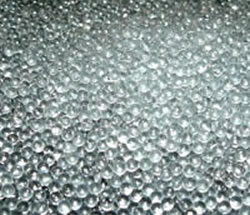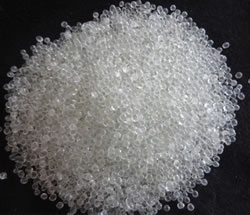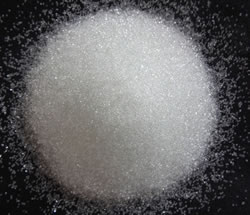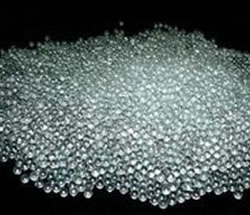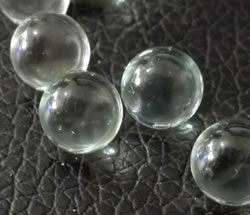Phone: (+27) 11 664-6370/6377/6099/6362
Email: beadsint@icon.co.za
 |
BEADS INTERNATIONAL |
| “Welcome to our world of grinding media” |
 SiLiBeads
SiLiBeadsOur glass beads in the 0,05mm and 5mm size ranges, are produced through a special thermal rounding process. The particularity of this way of production is that it need much less energy than other traditional melting processes.
Silibeads Type S are optimal for the use as grinding and dispersing media in horizontal and vertical pearl mills for the wet grinding of lacks, pigments, dyestuff, ink, agrochemicals and minerals. As filling agent for chemicals, paper and plastic. The low wear rate of the agitator disc and of the grinding chamber allows to reduce the production costs. The advantage that it brings to the cost-benefit aspect is evident.
Micro glass beads for the surface coating of metal, plastic, ceramic and wood.
| Available Standard Qualities | ||||
| Art.No. | Size Range 0 (mm.) | Resistance to compression (N) | Bulk density (kg/ltr) | Amount of beads (pieces/kg) |
| 4501 | 0,25 - 0,50 | - | 1.51 | 14,500.00 |
| 45015 | 0,40 - 0,60 | - | 1,50 | 6,114.650 |
| 4502 | 0,50 - 0,75 | - | 1,49 | 3,130.700 |
| 4503 | 0,75 - 1,00 | - | 1,48 | 1,492,074 |
4504 |
1,00 - 1,25 | 200 - 300 | 1,47 | 763,942 |
| 4505 | 1,25 - 1,55 | 300 - 450 | 1,47 | 226,353 |
| 4506 | 1,55 - 1,85 | 450 - 600 | 1,47 | 190,769 |
| 4507 | 1,70 - 2,00 | 550 - 700 | 1,47 | 95,493 |
| 4508 | 2,00 - 2,30 | 700 - 850 | 1,47 | 86,596 |
| 4509 | 2,30 - 2,60 | 850 - 1000 | 1,47 | 48,892 |
| 4510 | 2,50 - 2,85, | 950 - 1100 | 1,47 | 38,812 |
| 4511 | 2,85 - 3,30 | 1100 - 1450 | 1,46 | 28,294 |
| 4512 | 3,30 - 3,60 | 1450 - 1650 | 1,46 | 19,437 |
| 4513 | 3,70 - 4,30 | 1700 - 2100 | 1,45 | 11,937 |
| 4515 | 4,30 - 5,00 | 2100 - 2600 | 1,45 | 7,074 |
| Data of resistance to compression, bulk density and amount of beads are reference values | ||||
|
|
|||||||||||||||||||||||||||||||||||||||
| Chemical resistance according to DIN-Methods | |
Hydrolytic class according to DIN ISO 719 |
3 |
Acidic class according to DIN 12116 |
3 |
Alkaline class according to DIN ISO 695 |
2 |
